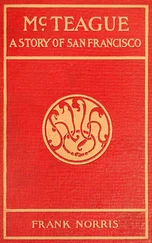Frank Norris - The Pit - A Story of Chicago
Здесь есть возможность читать онлайн «Frank Norris - The Pit - A Story of Chicago» — ознакомительный отрывок электронной книги совершенно бесплатно, а после прочтения отрывка купить полную версию. В некоторых случаях можно слушать аудио, скачать через торрент в формате fb2 и присутствует краткое содержание. Жанр: foreign_prose, literature_19, foreign_antique, на английском языке. Описание произведения, (предисловие) а так же отзывы посетителей доступны на портале библиотеки ЛибКат.
- Название:The Pit: A Story of Chicago
- Автор:
- Жанр:
- Год:неизвестен
- ISBN:нет данных
- Рейтинг книги:3 / 5. Голосов: 1
-
Избранное:Добавить в избранное
- Отзывы:
-
Ваша оценка:
- 60
- 1
- 2
- 3
- 4
- 5
The Pit: A Story of Chicago: краткое содержание, описание и аннотация
Предлагаем к чтению аннотацию, описание, краткое содержание или предисловие (зависит от того, что написал сам автор книги «The Pit: A Story of Chicago»). Если вы не нашли необходимую информацию о книге — напишите в комментариях, мы постараемся отыскать её.
The Pit: A Story of Chicago — читать онлайн ознакомительный отрывок
Ниже представлен текст книги, разбитый по страницам. Система сохранения места последней прочитанной страницы, позволяет с удобством читать онлайн бесплатно книгу «The Pit: A Story of Chicago», без необходимости каждый раз заново искать на чём Вы остановились. Поставьте закладку, и сможете в любой момент перейти на страницу, на которой закончили чтение.
Интервал:
Закладка:
II
Laura Dearborn's native town was Barrington, in Worcester County, Massachusetts. Both she and Page had been born there, and there had lived until the death of their father, at a time when Page was ready for the High School. The mother, a North Carolina girl, had died long before.
Laura's education had been unusual. After leaving the High School her father had for four years allowed her a private tutor (an impecunious graduate from the Harvard Theological School). She was ambitious, a devoted student, and her instructor's task was rather to guide than to enforce her application. She soon acquired a reading knowledge of French, and knew her Racine in the original almost as well as her Shakespeare. Literature became for her an actual passion. She delved into Tennyson and the Victorian poets, and soon was on terms of intimacy with the poets and essayists of New England. The novelists of the day she ignored almost completely, and voluntarily. Only occasionally, and then as a concession, she permitted herself a reading of Mr. Howells.
Moderately prosperous while he himself was conducting his little mill, Dearborn had not been able to put by any money to speak of, and when Laura and the local lawyer had come to close up the business, to dispose of the mill, and to settle the claims against what the lawyer grandiloquently termed "the estate," there was just enough money left to pay for Page's tickets to Chicago and a course of tuition for her at a seminary.
The Cresslers on the event of Dearborn's death had advised both sisters to come West, and had pledged themselves to look after Page during the period of her schooling. Laura had sent the little girl on at once, but delayed taking the step herself.
Fortunately, the two sisters were not obliged to live upon their inheritance. Dearborn himself had a sister—a twin of Aunt Wess'—who had married a wealthy woollen merchant of Boston, and this one, long since, had provided for the two girls. A large sum had been set aside, which was to be made over to them when the father died. For years now this sum had been accumulating interest. So that when Laura and Page faced the world, alone, upon the steps of the Barrington cemetery, they had the assurance that, at least, they were independent.
For two years, in the solidly built colonial dwelling, with its low ceilings and ample fireplaces, where once the minute-men had swung their kettles, Laura, alone, thought it all over. Mother and father were dead; even the Boston aunt was dead. Of all her relations, Aunt Wess' alone remained. Page was at her finishing school at Geneva Lake, within two hours of Chicago. The Cresslers were the dearest friends of the orphan girls. Aunt Wess', herself a widow, living also in Chicago, added her entreaties to Mrs. Cressler's. All things seemed to point her westward, all things seemed to indicate that one phase of her life was ended.
Then, too, she had her ambitions. These hardly took definite shape in her mind; but vaguely she chose to see herself, at some far-distant day, an actress, a tragedienne, playing the roles of Shakespeare's heroines. This idea of hers was more a desire than an ambition, but it could not be realised in Barrington, Massachusetts. For a year she temporised, procrastinated, loth to leave the old home, loth to leave the grave in the cemetery back of the Methodist-Episcopal chapel. Twice during this time she visited Page, and each time the great grey city threw the spell of its fascination about her. Each time she returned to Barrington the town dwindled in her estimation. It was picturesque, but lamentably narrow. The life was barren, the "New England spirit" prevailed in all its severity; and this spirit seemed to her a veritable cult, a sort of religion, wherein the Old Maid was the priestess, the Spinster the officiating devotee, the thing worshipped the Great Unbeautiful, and the ritual unremitting, unrelenting Housework. She detested it.
That she was an Episcopalian, and preferred to read her prayers rather than to listen to those written and memorised by the Presbyterian minister, seemed to be regarded as a relic of heathenish rites—a thing almost cannibalistic. When she elected to engage a woman and a "hired man" to manage her house, she felt the disapprobation of the entire village, as if she had sunk into some decadent and enervating Lower-Empire degeneracy.
The crisis came when Laura travelled alone to Boston to hear Modjeska in "Marie Stuart" and "Macbeth," and upon returning full of enthusiasm, allowed it to be understood that she had a half-formed desire of emulating such an example. A group of lady-deaconesses, headed by the Presbyterian minister, called upon her, with some intention of reasoning and labouring with her.
They got no farther than the statement of the cause of this visit. The spirit and temper of the South, that she had from her mother, flamed up in Laura at last, and the members of the "committee," before they were well aware, came to themselves in the street outside the front gate, dazed and bewildered, staring at each other, all confounded and stunned by the violence of an outbreak of long-repressed emotion and long-restrained anger, that like an actual physical force had swept them out of the house.
At the same moment Laura, thrown across her bed, wept with a vehemence that shook her from head to foot. But she had not the least compunction for what she had said, and before the month was out had said good-by to Barrington forever, and was on her way to Chicago, henceforth to be her home.
A house was bought on the North Side, and it was arranged that Aunt Wess' should live with her two nieces. Pending the installation Laura and Page lived at a little family hotel in the same neighbourhood. The Cresslers' invitation to join the theatre party at the Auditorium had fallen inopportunely enough, squarely in the midst of the ordeal of moving in. Indeed the two girls had already passed one night in the new home, and they must dress for the affair by lamplight in their unfurnished quarters and under inconceivable difficulties. Only the lure of Italian opera, heard from a box, could have tempted them to have accepted the invitation at such a time and under such circumstances.
The morning after the opera, Laura woke in her bed—almost the only article of furniture that was in place in the whole house—with the depressing consciousness of a hard day's work at hand. Outside it was still raining, the room was cold, heated only by an inadequate oil stove, and through the slats of the inside shutters, which, pending the hanging of the curtains they had been obliged to close, was filtering a gloomy light of a wet Chicago morning.
It was all very mournful, and she regretted now that she had not abided by her original decision to remain at the hotel until the new house was ready for occupancy. But it had happened that their month at the hotel was just up, and rather than engage the rooms for another four weeks she had thought it easier as well as cheaper to come to the house. It was all a new experience for her, and she had imagined that everything could be moved in, put in place, and the household running smoothly in a week's time.
She sat up in bed, hugging her shoulders against the chill of the room and looking at her theatre gown, that—in default of a clean closet—she had hung from the gas fixture the night before. From the direction of the kitchen came the sounds of the newly engaged "girl" making the fire for breakfast, while through the register a thin wisp of blue smoke curled upward to prove that the "hired man" was tinkering with the unused furnace. The room itself was in lamentable confusion. Crates and packing boxes encumbered the uncarpeted floor; chairs wrapped in excelsior and jute were piled one upon another; a roll of carpet leaned in one corner and a pile of mattresses occupied another.
Читать дальшеИнтервал:
Закладка:
Похожие книги на «The Pit: A Story of Chicago»
Представляем Вашему вниманию похожие книги на «The Pit: A Story of Chicago» списком для выбора. Мы отобрали схожую по названию и смыслу литературу в надежде предоставить читателям больше вариантов отыскать новые, интересные, ещё непрочитанные произведения.
Обсуждение, отзывы о книге «The Pit: A Story of Chicago» и просто собственные мнения читателей. Оставьте ваши комментарии, напишите, что Вы думаете о произведении, его смысле или главных героях. Укажите что конкретно понравилось, а что нет, и почему Вы так считаете.












